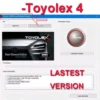No products in the cart.
DPF Deleting and its Impact on the Environment 8
Diesel Particulate Filters (DPFs) have become increasingly popular as a way to reduce the emissions of harmful pollutants from diesel engines. However, some vehicle owners have turned to DPF deleting as a way to improve engine performance. DPF deleting involves removing or disabling the DPF from the exhaust system, which can have a significant impact on the environment. In this blog post, we will explore what DPF deleting is, its environmental impact, legal and ethical considerations, alternatives to DPF deleting, and the importance of reducing emissions for a sustainable future. I
If you have DPF problem you might have light on your dashboard. Diesel particulate filter warning light, is a dashboard indicator that alerts drivers to an issue with their vehicle’s DPF system. This warning light typically looks like an amber or yellow icon shaped like a filter or a similar shape, and it may display the letters “DPF” or “Check Engine”. It is is designed to alert drivers when there is a problem with the DPF system that could potentially lead to increased emissions or engine damage. This could be due to a range of issues, such as a clogged or damaged DPF, a faulty sensor, or a problem with the engine management system. When the DPF light comes on, it is important to address the issue as soon as possible. Ignoring the warning could lead to further damage to the DPF system or the engine, and it could result in increased emissions and a potential violation of emissions regulations. It is recommended to consult the vehicle owner’s manual or a qualified mechanic to determine the cause of the warning light and the appropriate course of action.

What is DPF Deleting?
Diesel Particulate Filters (DPFs) are a critical component of modern diesel engines. They work by trapping soot and other harmful pollutants in a filter and then periodically burning them off to prevent them from being released into the atmosphere. DPFs have been instrumental in reducing the emissions of harmful pollutants such as nitrogen oxides (NOx), carbon monoxide (CO), and particulate matter (PM) from diesel engines. DPF deleting, on the other hand, involves removing or disabling the DPF from the exhaust system. This is often done by modifying the vehicle’s engine control unit (ECU) or installing an aftermarket tuning device. DPF deleting is typically done to improve engine performance, particularly in high-performance or heavy-duty diesel vehicles.
Why People Delete DPFs
Vehicle owners may choose to delete their DPFs for various reasons. One of the primary reasons is to improve engine performance. DPFs can cause a restriction in the exhaust system, which can reduce engine power and fuel efficiency. By removing the DPF, the engine can operate more efficiently, resulting in improved performance and better fuel economy. Another reason why people may choose to delete their DPFs is to avoid the cost and inconvenience of replacing a failed or clogged DPF. Replacing a DPF can be an expensive and time-consuming process, especially in older or high-mileage vehicles.
Process of DPF delete or DPF off
DPF removal involves removing or bypassing the diesel particulate filter (DPF) from a vehicle’s exhaust system. While this process can increase engine performance and improve fuel efficiency, it has significant environmental and legal implications. The process of DPF delete typically involves removing the DPF from the vehicle’s exhaust system and installing a replacement pipe or a bypass module. This is often done by a mechanic or a specialized tuning shop that offers DPF delete services.
In many cases, DPF delete involves making changes to the engine control unit (ECU) software. The ECU is responsible for controlling various aspects of the engine’s performance, including fuel injection, ignition timing, and emissions control. When the DPF is removed, it changes the exhaust flow and pressure in the system, which can cause the engine to run differently than it was designed to. To compensate for the changes in exhaust flow and pressure, the ECU software must be modified to adjust the engine’s performance. This typically involves remapping or reprogramming the ECU to optimize fuel injection timing, air-to-fuel ratio, and other engine parameters to ensure optimal performance without the DPF.

ECU remapping can be done through a variety of methods, including connecting a specialized tuning tool to the vehicle’s OBD-II port or by removing the ECU from the vehicle and programming it on a bench. In some cases, specialized software and hardware may be required to modify the ECU.
It’s important to note that making changes to the ECU software can have significant implications for the vehicle’s emissions and legal compliance. In many countries, it is illegal to modify emissions control systems, including DPFs, and doing so can result in fines, penalties, and the revocation of vehicle registration. It’s important to consult local regulations and laws before considering any modifications to the vehicle’s emissions control systems.
Environmental Impact of DPF Deleting
While DPF deleting may provide some benefits for vehicle owners, it has a significant impact on the environment. When a DPF is removed or disabled, the emissions of harmful pollutants increase, including nitrogen oxides (NOx), particulate matter (PM), and other air pollutants.
NOx is a harmful gas that contributes to the formation of smog and acid rain. It can also have significant health impacts, including respiratory and cardiovascular problems. PM is made up of tiny particles that can penetrate deep into the lungs and cause health problems, including asthma, bronchitis, and lung cancer.
According to a study conducted by the California Air Resources Board (CARB), the emissions of NOx and PM increase significantly when a DPF is removed or disabled. The study found that heavy-duty trucks with deleted DPFs emit up to 55 times more NOx and 15 times more PM than trucks equipped with functioning DPFs.
The increased emissions of harmful pollutants from deleted DPFs have significant impacts on air quality and public health. The emissions contribute to the formation of smog, which can reduce visibility and cause respiratory problems. They can also have long-term health impacts, including an increased risk of lung cancer and other respiratory diseases.
In addition to the health impacts, the increased emissions of NOx and PM from deleted DPFs also have environmental impacts. They contribute to climate change by increasing the concentration of greenhouse gases in the atmosphere, which can lead to global warming and other climate-related problems.
Legal and Ethical Considerations
DPF OFF is illegal in most countries, including the United States and the European Union. In the US, the Clean Air Act prohibits the removal or tampering of emissions control devices, including DPFs. Violators can face significant fines and penalties, including the revocation of their vehicle registration and the potential for criminal charges.
In addition to the legal consequences, there are also ethical considerations of DPF deleting and its impact on society. The increased emissions from deleted DPFs contribute to air pollution and other environmental problems, which can disproportionately impact low-income and marginalized communities. These communities are often located in areas with higher levels of air pollution, and they may already be facing health challenges due to the cumulative effects of exposure to multiple sources of pollution.
Alternatives to DPF Deleting
There are alternatives to DPF deleting that can improve engine performance without increasing emissions. One option is to upgrade the engine with a higher-performance DPF or a more efficient exhaust system. This can provide the same benefits as DPF deleting without the environmental impacts.
Another option is to use biodiesel or other alternative fuels that produce fewer emissions than traditional diesel fuel. Biodiesel is made from renewable resources, such as vegetable oil or animal fat, and it can reduce emissions of NOx and PM by up to 50%. Other alternative fuels, such as hydrogen or natural gas, can also provide significant emissions reductions.
The Importance of Reducing Emissions for a Sustainable Future
Reducing emissions from diesel engines is critical for a sustainable future. Diesel engines are a significant source of air pollution and greenhouse gas emissions, and they contribute to a range of environmental and health problems. By reducing emissions from diesel engines, we can improve air quality, protect public health, and mitigate the impacts of climate change.
There are many ways to reduce emissions from diesel engines, including using emissions control devices like DPFs, upgrading engines with more efficient technology, and using alternative fuels. While DPF deleting may provide short-term benefits for vehicle owners, it has significant long-term impacts on the environment and public health. We must work together to promote responsible vehicle maintenance and reduce emissions from diesel engines to create a more sustainable future for all.
So what should you do?
DPF deleting is a controversial practice that has significant environmental and health impacts. While it may provide some benefits for vehicle owners, it increases the emissions of harmful pollutants, contributes to air pollution and climate change, and is illegal in most countries. There are alternative ways to improve engine performance and reduce emissions, such as upgrading emissions control devices, using alternative fuels, and promoting responsible vehicle maintenance. By working together to reduce emissions from diesel engines, we can create a more sustainable future for all.






Most people delete it because they are expensive to replace when fail…
I removed dpf and my passat b7 runs much better now but can you tell me do i need software removal as well? Engine is 2.0tdi with edc17c46 ecu
These kind of things should be prosecuted by the law!
Türkiye’de çok yaygın bir uygulama, dpf ve kirlilik konusunda katı yasalar yok
Totally agree with @Shelly, i am from Portugal and that is the only reason why people made these OFF mods here.
I had problems on Passat b7 2.0tdi, emptied dpf and did remap, driving it for 5 years now without any issue.
Just to be clear, people are not getting DPFs and other things like ADBLUE and EGR removed for better engine performance, although it may provide a slight improvement. Rather, they do it because repairing these components when they break can be very costly. And those thing are built to broke for car makers to make more profit on parts.
Shelly
What abou EGR and SCR delete? I think that is a lot worse problem than DPF.